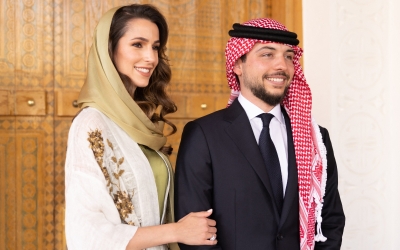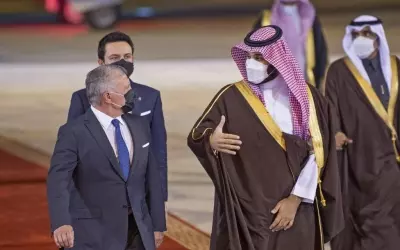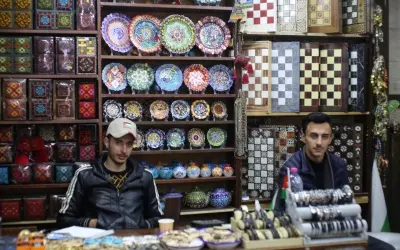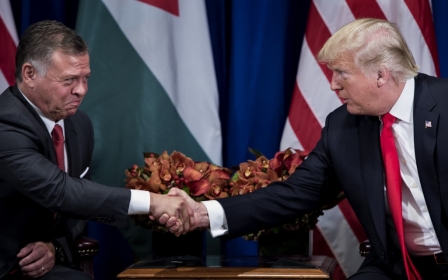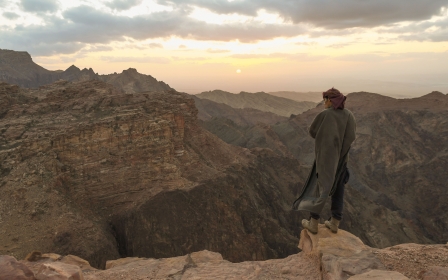US boosts assistance to Jordan with 'longest and largest' aid package
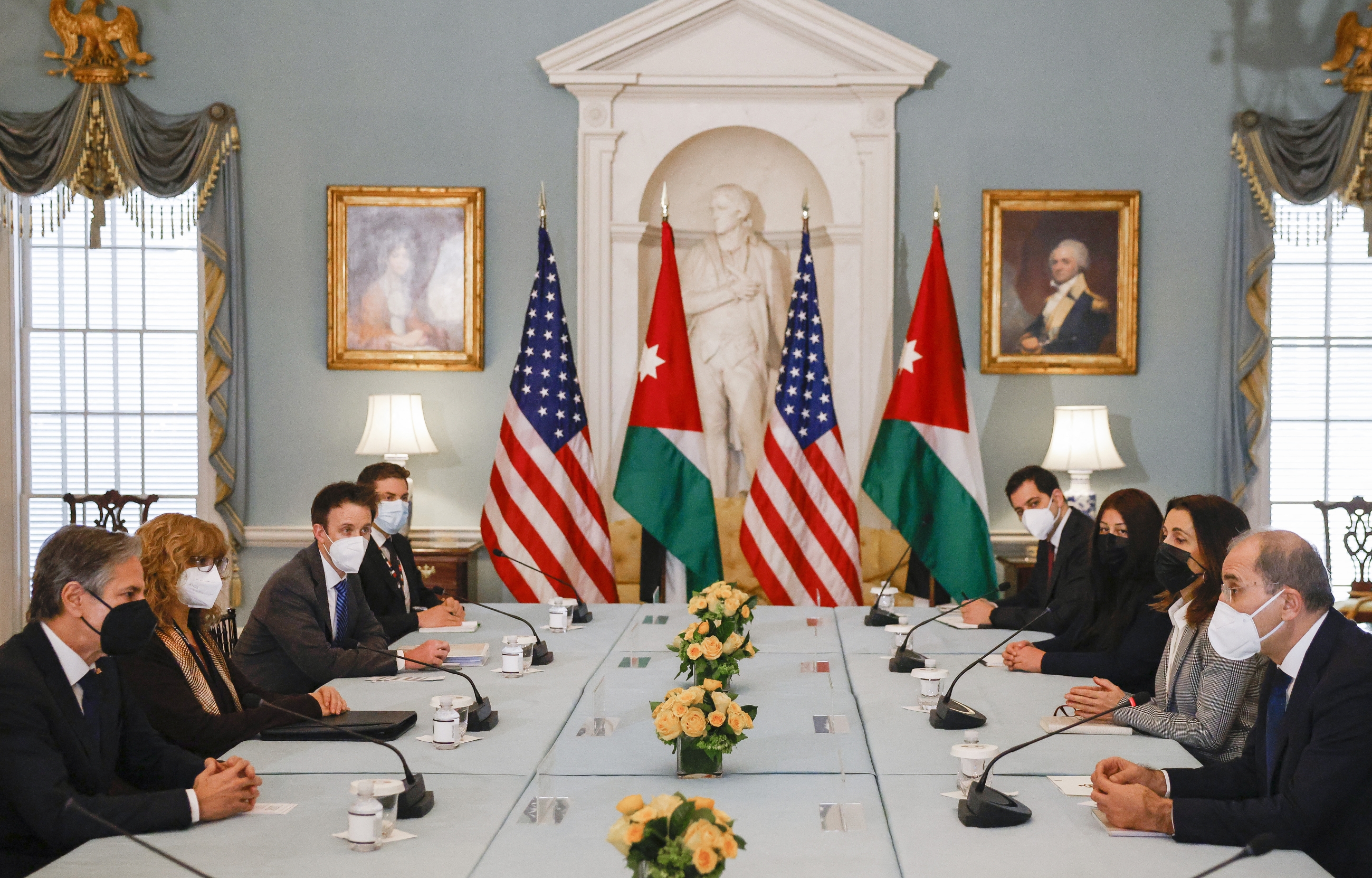
The US is boosting aid to its longtime ally Jordan as the resource-poor kingdom copes with a flagging economy at home and the lingering effects of conflicts amongst its neighbours.
The two countries signed a memorandum of understanding (MOU) on Friday that will see the US provide $10.15bn in aid to Jordan over the next seven years.
The deal was first announced by President Joe Biden in July following his meeting with Jordan's King Abdullah II on the sidelines of a summit in Jeddah.
"The US has gone above and beyond for Jordan," the country's foreign minister, Ayman Safadi, said at an event hosted by the Wilson Center in Washington following the signing.
"It's an extremely important MOU. It speaks to the strong friendship the two countries have. This is the longest and the largest MOU that we signed."
The Hashemite Kingdom of Jordan, as it is officially known, is one of the US's most stalwart allies in the region and a key partner in the campaign to defeat the Islamic State group. It is also home to US military bases.
"The MOU represents a major commitment to Jordan's stability and the durability of the strategic partnership," read a joint statement released by the State Department on Friday after the signing.
"The US commitment to Jordan's security and prosperity is ironclad, and this MOU will address the extraordinary challenges Jordan faces," the statement added.
The US is Jordan's largest donor, and the level of aid the kingdom receives exceeds the amount Washington provides to Egypt, another US ally in the region with a population 10 times the size of Jordan.
US aid to Jordan has been climbing for nearly a decade. In 2014 it totalled about $660m per year. With the new MOU it is on track to reach $1.45bn in 2023.
Notably, the rise in funding has occurred across administrations, from former presidents Barack Obama to Donald Trump, who had a testy relationship with King Abdullah over the Palestinian-Israeli conflict
The aid comes as Jordan continues to deal with the fallout of the war in neighbouring Syria. The kingdom hosts roughly 1.3 million refugees from the conflict, half of whom are under the age of 15.
Safadi said the new aid package would allow Jordan to address the changing nature of the country's refugee crisis.
"They [refugees'] no longer need emergency relief. They need schools, universities and jobs," he said.
'Russia stabilising factor'
More recently, Jordan has seen an influx of drugs crossing its border with Syria. The number of captagon pills seized by Jordan is on track to double this year compared with 2021. Safadi said the aid would help Jordan bolster its border security.
Yet, Syria is one area where there is some daylight between Amman and Washington, particularly in Congress, where support for normalisation with Damascus is weak.
Jordan, along with other states in the region, has been pushing ahead with efforts to revive ties with Syria, with many Jordanian businesspeople hoping that normalisation can renew old trade links. Last year, King Abdullah held a rare phone call with Syria's president, Bashar al-Assad.
Also on Syria, Safadi said that while Jordan supports the sovereignty and territorial integrity of Ukraine, "there are many issues with which we still need to engage with Russia".
"The truth is [the] Russian presence in Syria has been a stabilising factor in the south because the vacuum would be filled by militias and other groups that will not be able to insure stability in those places," he said.
The diplomat's comments come amid reports of concern in other nearby states, such as Turkey, that Iranian-backed forces could fill any void left by Russian troop redeployments from Syria to Ukraine.
Trimming the public sector
Jordan has been at the forefront of US efforts to foster greater cooperation with other US partners in the region, particularly as Washington looks to step back from the Middle East to confront rising threats from China.
The kingdom aims to deepen economic ties with Iraq and Egypt. It is developing an industrial city along its border with Iraq, and the two countries are working to link their power grids. Iraq suffers from regular blackouts.
In addition, Israel, Jordan and the United Arab Emirates signed a US-backed deal last year under which a solar plant in the Jordanian desert will generate power for Israel, and a desalination plant in Israel will provide water to Jordan.
These initiatives come as Jordan tries to revive its struggling economy. Gross domestic product per capita in the kingdom has been more or less declining since 2009. One in four adults in the country is unemployed, while youth unemployment stands at roughly 50 percent.
Historically, Jordanians have turned to the government for job creation, with the bulk of its budget supporting public-sector salaries and pensions. In 2021, public payrolls comprised nearly 65 percent of state spending.
Safadi said the kingdom is pushing ahead with economic reforms to make its private sector more competitive. "The public sector can no longer offer jobs. The only way to get jobs, which is the key challenge for us and others, is to get the private sector to come to Jordan.
"These reforms are essential for Jordan. They are our reforms. We would have done them with or without the MOU, because we have no alternative if we want to put our economy on a more sustainable and resilient path. But the MOU coming in at this time is going to help us implement many of the projects."
Middle East Eye delivers independent and unrivalled coverage and analysis of the Middle East, North Africa and beyond. To learn more about republishing this content and the associated fees, please fill out this form. More about MEE can be found here.


